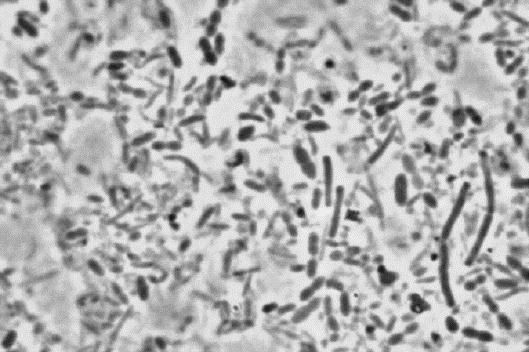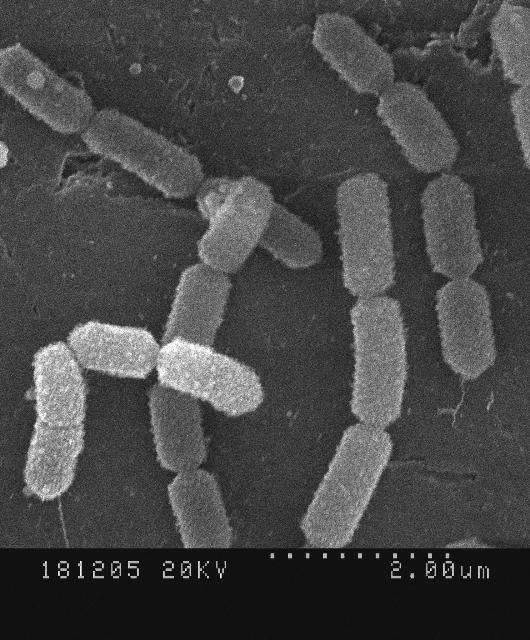What are probiotics?
Probiotics are considered to be "good bacteria." Often, when we think of bacteria, we think about the ones that cause illness.While there are many bacteria that can cause disease, there are others that are beneficial to our health. Probiotics are "live microorganisms that, when administered in adequate amounts, provide a health benefit" (FAO & WHO 2002).
Most probiotics are Lactobacillus or Bifidobacterium species. Some common probiotic bacteria are listed below:
- Lactobacillus acidophilus
- Lactobacillus casei
- Lactobacillus rhamnosus
- Bifidobacterium longum
- Bifidobacterium infantis
- Bifidobacterium breve
- Bifidobacterium bifidum
Some yeasts can also be probiotic. A common probiotic yeast is Saccharomyces boulardii.
What are the benefits of probiotics?

Credit: Volker Mai
The balance of bacteria in our gastrointestinal tract may be disturbed by a change in diet, contaminated food, stress, antibiotics and other medications, or aging. Probiotics can help restore and maintain intestinal balance. Probiotics may help prevent diarrhea that is associated with taking antibiotics (Issa et al. 2014). Probiotics may also help prevent constipation (Dimidi et. al 2014) and help manage symptoms of gastrointestinal diseases such as ulcerative colitis (Gouri et al. 2014).

Credit: Courtesy of Dr. Alexandra Smith, Department of Food Sciences, University of Guelph. Copyright is held by Institut Rosell Inc., Montreal, QC. Reproduced with permission.
How do probiotics work?
Probiotics promote health by:
- Producing substances in the gut, such as lactic acid, that help to slow the growth of disease-causing bacteria.
- Competing with disease-causing bacteria for nutrients and space.
- Breaking down toxins.
- Affecting the nerve and muscle function of the gut.
But probiotics do not live permanently in the gut—they need to be ingested frequently if they are to exert their beneficial effects.
What makes a good probiotic?
Probiotics need to be alive when they reach the gut. A good probiotic, therefore, needs to be able to survive the acidic environment of the stomach and resist other bacteria.
A good probiotic must also be safe. To ensure safety, probiotics must be accurately identified, free from contamination, and labeled properly. Probiotics are tested to make sure they do not cause stomach upset, diarrhea, or other side effects. Also, probiotics are tested further to make sure they have positive effects on human health.
Are there risks in taking probiotics?
Probiotics are considered to be safe for healthy people. However, people with compromised health or suppressed immune function, such as individuals with HIV/AIDS and those who have undergone a transplant or are currently being treated for cancer, should consult their doctors before taking a probiotic (Hempel et al. 2014).
Shopping for Probiotics
Probiotics are available in capsules and as powders. Probiotics are added to some foods such as certain brands of yogurt. Probiotics may also be found in specialty fermented milk beverages, snack bars, fruit drinks, and breakfast cereals.
Summary
Probiotics are live microbes with health benefits. They are effective in maintaining and restoring the balance of microbes in our gastrointestinal tract. With more research, other health benefits may be confirmed.
Endnotes
Dimidi, E., S. Christodoulides, K. C. Fragkos, S. M. Scott, and K. Whelan. 2014. "The effect of probiotics on functional constipation in adults: a systematic review and meta-analysis of randomized controlled trials." The American Journal of Clinical Nutrition 100 (4): 1075–84. https://doi.org/10.3945/ajcn.114.089151
Food and Agriculture Organization (FAO) of the United Nations and World Health Organization (WHO). 2002. Guidelines for the Evaluation of Probiotics in Food. Report of a Joint FAO/WHO Working Group on Drafting Guidelines for the Evaluation of Probiotics in Food.
Ghouri, Y. A., D. M. Richards, E. F. Rahimi, J. T Krill, K. A. Jelinek, and A. W. DuPont. 2014. "Systematic review of randomized controlled trials of probiotics, prebiotics, and synbiotics in inflammatory bowel disease." Clinical and Experimental Gastroenterology. 7:473–87. https://doi.org/10.2147/CEG.S27530
Hempel, S., S. Newberry, A. Ruelaz, Z. Wang, J. N. Miles, M. J. Suttorp, B. Johnsen, R. Shanman, W. Slusser, N. Fu, A. Smith, B. Roth, J. Polak, A. Motala, T. Perry, and P. G. Shekelle. 2014. "Safety of probiotics used to reduce risk and prevent or treat disease." Evidence Reports/Technology Assessments. 200:1–645. https://doi.org/10.3748/wjg.v20.i47.17788
Issa, I., and R. Moucari. 2014. "Probiotics for antibiotic-associated diarrhea: Do we have a verdict?" World Journal of Gastroenterology 20 (47): 17788–17795. https://doi.org/10.2147/CEG.S27530